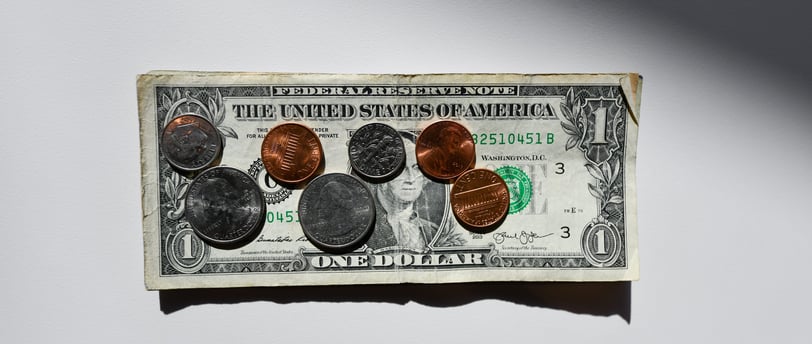Top 10 Budgeting Tips for Financial Control and Peace of Mind
Master your finances with 10 essential budgeting tips for a secure, stress-free, and prosperous future.
BUDGETING
4/21/20232 min read


Effective budgeting is the foundation of sound personal finance management. A well-planned budget can help you achieve your financial goals, reduce stress, and enjoy a more secure future. Discover the top 10 budgeting tips that will help you take control of your finances and pave the way to financial freedom.
Set Clear Financial Goals:
Establish specific, measurable, attainable, relevant, and time-bound (SMART) financial goals to guide your budgeting efforts. Whether it's paying off debt, saving for a down payment, or building an emergency fund, clear objectives provide direction and motivation.
Track Your Income and Expenses:
Begin by tracking your income and expenses for at least one month to gain a comprehensive understanding of your financial situation. Categorize your spending to identify patterns and areas where adjustments can be made.
Create a Realistic Budget:
Based on your tracked expenses, develop a realistic budget that covers essential categories like housing, utilities, groceries, and transportation. Allocate funds for discretionary spending, such as entertainment and dining out, while ensuring you prioritize your financial goals.
Prioritize Debt Repayment:
Include debt repayment as a significant category in your budget. Focus on high-interest debt first, such as credit card balances, to reduce the overall interest paid and accelerate your journey to becoming debt-free.
Build an Emergency Fund:
Set aside money each month to create an emergency fund that covers at least 3-6 months of living expenses. This fund provides a financial safety net during unforeseen circumstances, such as job loss or medical emergencies, and prevents you from relying on credit cards or loans.
Utilize Budgeting Tools:
Take advantage of budgeting tools and apps, such as Mint, YNAB, or EveryDollar, to simplify the budgeting process. These tools can help you track spending, monitor progress, and make adjustments to your budget as needed.
Trim Unnecessary Expenses:
Analyze your spending habits to identify areas where you can cut back, such as subscription services, daily coffee runs, or impulse purchases. Redirect these savings towards your financial goals or other essential categories in your budget.
Save on Fixed Expenses:
Explore ways to reduce fixed expenses, such as refinancing your mortgage, negotiating lower insurance rates, or bundling services like cable and internet. These savings can have a significant impact on your overall financial health.
Adjust Your Budget Regularly:
Your financial situation and priorities may change over time. Review and adjust your budget regularly to ensure it remains aligned with your goals and reflects any changes in income or expenses.
Stay Committed and Maintain Accountability:
Budgeting requires consistency and discipline. Stay committed to your budget, track your progress, and hold yourself accountable. Celebrate milestones and learn from setbacks as you work towards achieving your financial goals.
Conclusion: Effective budgeting is the cornerstone of sound personal finance management. By implementing these top 10 budgeting tips, you can take control of your finances and work towards a brighter financial future. Start by setting clear goals, tracking your income and expenses, and staying committed to your plan. As you gain confidence in your budgeting skills, you'll enjoy greater financial control and peace of mind.
